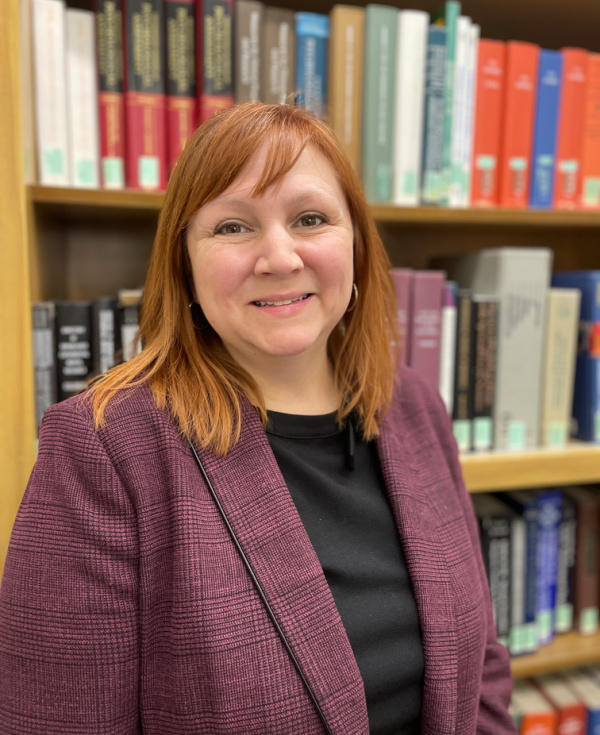Decades of temperature and precipitation statistics that inform ongoing discussions around climate change. A growing body of information about the prevalence of diabetes and associated risk factors that enables preventive health care. Rich histories of campaign messages and voter behaviors that offer insight into the evolving political landscape.

No matter the discipline, data is the lifeblood of knowledge and plays a critical role in the research process. Ensuring that data is preserved and accessible is not only crucial, but it is also mandated by numerous funding agencies. The emerging field of data curation and storage is a natural extension of the work librarians have done for decades — and Marianne Stowell Bracke loves it.
Bracke, who serves as Wayne State University’s data librarian, has dedicated her career to supporting scholars in managing their data. Effective data management can help scholars connect with peers, build on past studies, share resources and increase citations. Moreover, Bracke noted, it is an incumbent responsibility of scholars to further collective knowledge and keep information free and discoverable.
“My goal is to make life easier for scholars,” she said. “Librarians have long been advocates of open science and are natural partners for researchers. Preserving and sharing research data fundamentally allows others to build upon that knowledge for the benefit of us all.”
She observed that while many researchers focus primarily on the publication of research, data is just as integral to scholarship. In her role, Bracke provides researchers with guidance for creating data management plans, which includes selecting the right repository for storage, developing meta-data descriptions, and navigating archives like the Inter-university Consortium for Political and Social Research (ISPSR) and Data Sharing for Demographic Research. She collaborates with the Office of the Vice President for Research to centralize the university’s data management information within the Wayne State Libraries.
“There’s been a major culture shift in the research world since data sharing mandates become more common among funding agencies,” Bracke said. “Now, scholars have to think about data management early in the research process: when they’re seeking IRB approval or submitting a grant proposal — it can feel like added work. Researchers want to do their research; the data management is where I come in.”
She noted that some scholars are still reluctant to share their data, but that proper data management includes stops and controls. She can help scholars decide how much data to share and making it de-identifiable.
“It’s always still your data — but the rest of the world can benefit from it,” she said. “Preserving and sharing your data allows your work to live beyond you. I think about data management as future-proofing your findings. The best tools to analyze them may not have been created yet!”
To learn more about data management, scholars can contact Bracke at marianne.bracke@wayne.edu.
Scholars are encouraged to participate in I Love Data Week, hosted by Wayne State University Libraries Feb. 12-16. This weeklong celebration focuses on data equity and inclusion, disciplinary communities, and creating a kinder world through data.